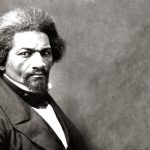Kevin DeYoung is scheduled to join the Evangelium21 team at next year’s conference in Hamburg, Germany, on the topic of his superb book Taking God at His Word (Crossway, 2014) [20 quotes | interview | review]. If you’re interested in supporting the ministry of Evangelium21, you can do so here. (“Für internationale Überweisungen” means “For International Deposits.” If you have questions, you can write an English message on their contact page.)
When I first told people that I was moving my family to Germany for school, many expressed heartfelt concern for our spiritual welfare (some frequently reminded us we can’t even homeschool our kids here). Today, many American Christians are grateful to Germany for producing Martin Luther, but they presume the days of gospel vitality in this land are over. In the past it wasn’t always this way.
In the early 18th century, ministers in colonial America and Germany closely observed the ways God was producing gospel fruit on both sides of the Atlantic. The pastor-theologian Jonathan Edwards (1703–58) praised the “revival of the power and practice of religion in Saxony in Germany” that occurred under the leadership of August Hermann Francke (1663–1727). And many German believers excitedly read translations of Edwards’s reports on the Great Awakening in New England.
Although the relationship has been damaged by German liberal theology and shallow American entertainment church culture in the past century and a half, American Christians have another opportunity today to joyfully observe and pray for the leaders who have inherited Luther’s mantle in the land of the Reformation. I want to highlight a small, but formidably dynamic group, that is challenging German Christians to think deeper about the church’s identity and mission at the brink of the Reformation’s 500th anniversary. Their message and efforts should also challenge believers outside of Germany to faithfully carry out the church’s mission—especially those who need a model in post-Christian cultures.
Introducing Evangelium21
“We chose the name Evangelium21,” founder and chairman Matthias Lohmann states, “since evangelium is the German word for gospel and 21 indicates our desire to promote the same old gospel in the 21st century.” Matthias pastors the Frei Evangelische Gemeinde in Munich, a “free church” (i.e., not connected to the State). He’s joined by a talented team of leaders from Germany, Austria, and Switzerland to advance Evangelium21’s mission. “We want to make contributions that will revive and strengthen churches,” he explains. Their objective is to reestablish the centrality of the Reformation’s five solas—grace alone, faith alone, Christ alone, Scripture alone, God’s glory alone—in churches throughout German-speaking countries by cooperating in gospel work and providing theological and ministry resources. (For more on the group’s vision, see this 2012 article by Lohmann at 9Marks).
The young group began in 2009, but they’ve already developed an exciting array of resources for German churches. They closely partner with a publishing company named 3L Verlag, offering solid books and resources on theology and Christian living. The group’s Facebook page stays active with members sharing articles, offering book recommendations, and referring each other to good churches. Ron Kubsch, assistant chairman, maintains an active blog called TheoBlog, engaging current cultural and theological issues with a reformed Christian Weltanschauung (worldview). He and Matthias are also actively involved in teaching and leading the Martin Bucer Seminar, a theological seminary with locations in Bonn, Munich, and elsewhere. The other assistant chairman, Christian Wegert, pastors the thriving Arche Gemeinde in Hamburg, and the sermons are televised throughout Germany. Evangelium21 also promotes Christian material for children and has recently started a group called Josia, which offers conferences and online media resources for young adults.
The Mission of the Church in 21st-Century Germany
The highlight for the group, however, is hosting the annual conference. The latest one took place in early April, and over 800 attendees from all over Europe participated. The speakers worked through the book of Titus, focusing on what it teaches about the church’s mission, and Greg Gilbert, pastor of Third Avenue Baptist Church in Louisville, Kentucky, spoke about the theme of the book he co-authored with Kevin DeYoung, What Is the Mission of the Church?. (The team also handed out newly translated copies to the attendees: “Was ist der Missions-Auftrag der Gemeinde Jesu?”) You can listen to audio of the messages here.
The speakers proclaimed in unison that the church’s mission consists chiefly in advancing the Great Commission that Christ gave to his apostles: “Go therefore and make disciples of all nations, baptizing them in the name of the Father and of the Son and of the Holy Spirit, teaching them to observe all that I have commanded you” (Matthew 28:19–20). The point seems simple enough, but history has shown that keeping this mission at the forefront of the church’s identity is anything but easy. The speakers addressed many of the theoretical arguments over the years that have undermined this mission, both from liberal theology and social reform movements.
While social reform is a good and often necessary thing, they argued, it shouldn’t be confused with the church’s mission. Ron Kubsch’s seminar more directly engaged missiological issues in the German context, discussing how universalistic tendencies in the theology of thinkers like Friedrich Schleiermacher, Karl Rahner, and Dietrich Bonhoeffer impacted the mission of many churches in Germany. If salvation is unnecessary and religion ultimately amounts to individual feeling or morality, then the church has no evangelistic role and must change its mission to survive. Kubsch, however, insisted sound theology is indispensable to the church’s mission and existence.
Following Luther’s Example
The main thrust of the conference, though, rested on the practical side of the Great Commission. Gilbert suggested that many Christians replace evangelism with other tasks like social reform simply because it’s easier—it’s more socially acceptable to feed the poor than to patiently and lovingly tell your neighbor or co-worker about sin and their need for reconciliation with God through faith in Christ. This point applies transnationally, hitting home for believers in post-Christian Germany as well as in American Bible Belt. We were challenged to participate in a mission of eternal consequence, expending our churches’ energies and resources on gospel work that advances an eternal kingdom rather than a merely temporal one.
The German pastors expressed loud and clear that the church’s mission in the modern world rests in obedience to ancient words. Like Luther 500 years ago, they long to reinvigorate Germany’s churches by unleashing the power of the gospel. Unlike Luther, however, they’re avoiding the shackles of church-state relations, focusing instead on Luther’s doctrine of the priesthood of all believers to empower ordinary Christians—not princes and governments—to carry out the church’s mission. (Also unlike Luther, thankfully, they’re not sanctioning the execution of Baptists, which many of them identify as, and they’ve renounced Luther’s deplorable antisemitism.)
On the edge of the Reformation’s 500th anniversary, believers worldwide should not only thank God for the ways he used German believers like Luther to bless his church, but we should also rejoice and pray for the men and women he’s raised up to advance the church’s mission in Germany today.
Is there enough evidence for us to believe the Gospels?
 In an age of faith deconstruction and skepticism about the Bible’s authority, it’s common to hear claims that the Gospels are unreliable propaganda. And if the Gospels are shown to be historically unreliable, the whole foundation of Christianity begins to crumble.
In an age of faith deconstruction and skepticism about the Bible’s authority, it’s common to hear claims that the Gospels are unreliable propaganda. And if the Gospels are shown to be historically unreliable, the whole foundation of Christianity begins to crumble.



































